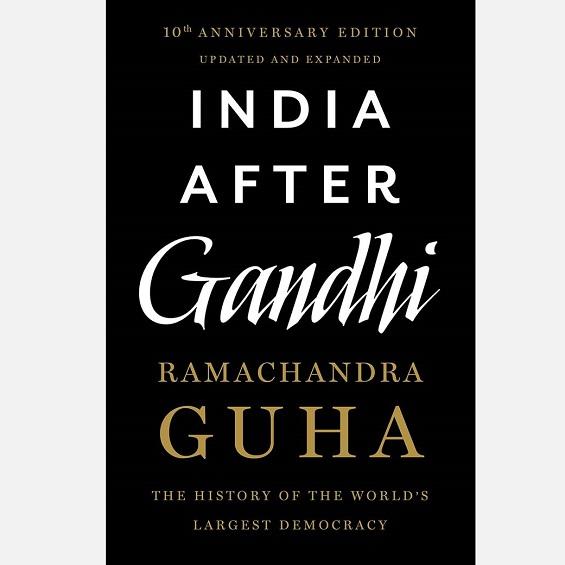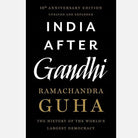India After Gandhi
Ramachandra Guha’s India after Gandhi is a magisterial account of the pains, struggles, humiliations and glories of the world’s largest and least likely democracy. A riveting chronicle of the often brutal conflicts that have rocked a giant nation, and of the extraordinary individuals and institutions who held it together, it established itself as a classic when it was first published in 2007.
In the last decade, India has witnessed, among other things, two general elections; the fall of the Congress and the rise of Narendra Modi; a major anti-corruption movement; more violence against women, Dalits, and religious minorities; a wave of prosperity for some but the persistence of poverty for others; comparative peace in Nagaland but greater discontent in Kashmir than ever before. This tenth anniversary edition, revised and expanded, brings the narrative up to the present.
Published to coincide with seventy years of the country’s independence, this definitive history of modern India is the work of one of the world’s finest scholars at the height of his powers."
About the Author
Ramachandra Guha was born in Dehradun in 1958, and educated in Delhi and Calcutta. He has taught at the universities of Oslo, Stanford and Yale, and at the Indian Institute of Science. He has been a Fellow of the Wissenschaftskolleg zu Berlin, and also served as the Indo-American Community Chair Visiting Professor at the University of California at Berkeley.
After a peripatetic academic career, with five jobs in ten years in three continents, Guha settled down to become a full-time writer, based in Bengaluru. His books cover a wide range of themes: they include a global history of environmentalism, a biography of an anthropologist-activist, a social history of Indian cricket, and a social history of Himalayan peasants. His entire career, he says, seems in retrospect to have been an extended (and painful) preparation for the writing of India After Gandhi.
Guha’s books and essays have been translated into more than twenty languages. The prizes they have won include the UK Cricket Society’s Literary Award and the Leopold-Hidy Prize of the American Society of Environmental History. In 2008, Prospect and Foreign Policy magazines nominated Guha as one of the world’s one hundred most influential intellectuals. In 2009, he was awarded the Padma Bhushan for services to literature and education. In 2015, he was awarded the Fukuoka Prize for contributions to Asian culture and scholarship.

